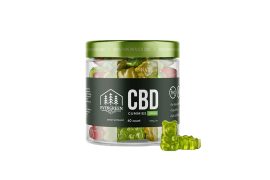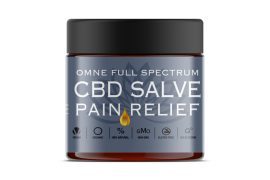Cannabidiol (CBD) has surged in popularity over the past few years, often touted for its therapeutic properties and as a natural alternative to traditional medications. With the rise of CBD products in markets like CBD oil Canada, consumers are eager to understand what CBD is, how it works, and the legal landscape surrounding its use. This article aims to demystify CBD by exploring its science, safety, and legality.
Understanding CBD: What Is It?
CBD is one of over 100 compounds known as cannabinoids found in the cannabis plant. Unlike tetrahydrocannabinol (THC), the compound responsible for the psychoactive effects of cannabis, CBD does not produce a “high.” Instead, it is believed to interact with the body’s endocannabinoid system, which is crucial in regulating various physiological processes, including pain, mood, and sleep.

The Science Behind CBD
Research into CBD is still in its early stages, but several studies have shown promising results. For instance, CBD has been investigated for its potential to reduce anxiety, alleviate pain, and even help manage certain neurological disorders. The compound has anti-inflammatory and neuroprotective properties, which contribute to its therapeutic potential. However, more extensive human studies are needed to understand its efficacy and mechanisms of action fully.
Safety and Side Effects
While CBD is generally considered safe, it can cause side effects in some individuals. Common side effects include fatigue, changes in appetite, and diarrhea. Users need to start with a low dose and gradually increase it while monitoring their body’s response. Additionally, CBD can interact with certain medications, particularly those that come with a “grapefruit warning.” Consulting a healthcare professional before using CBD, especially for those on other medications, is advisable.
CBD Products: What to Look For
The market for CBD products is vast and diverse, including oils, tinctures, capsules, edibles, and topicals. When selecting a product, consumers should consider the following:
- Source of CBD: Opt for products derived from hemp, which contains lower levels of THC.
- Third-party testing: Look for products undergoing independent lab testing for purity and potency.
- Full-spectrum vs. isolate: Full-spectrum products contain multiple cannabinoids and terpenes, which may enhance the therapeutic effects through the entourage effect, while isolates contain only CBD.
Legal Status of CBD in Canada
In Canada, CBD is legal and regulated under the Cannabis Act. This means that products must meet strict quality standards and regulations. CBD oil can be purchased from licensed retailers, both online and in-store, ensuring that consumers have access to safe and reliable products. However, it’s essential to remain aware of provincial regulations, as there may be variations in how CBD products are sold and distributed.
Misconceptions About CBD
Despite its growing acceptance, many misconceptions about CBD persist. A common belief is that all CBD products contain THC and will lead to intoxication. In reality, reputable CBD products derived from hemp contain minimal THC, well below the legal limit in Canada. Another misconception is that CBD is a cure-all; while it shows promise for various health issues, it is not a panacea and should be used as part of a broader health strategy.
The Future of CBD
As research continues, the future of CBD looks promising. With ongoing studies exploring its potential benefits for various conditions, public interest is likely to grow. Furthermore, as legislation surrounding cannabis evolves, consumers can expect more transparency and quality in the CBD market, enhancing the overall safety and efficacy of products available.

Conclusion
CBD has carved a niche for itself in the wellness industry, backed by emerging science and a growing body of anecdotal evidence. While many people find relief through its use, it’s crucial to approach CBD with informed caution. By understanding the science behind it, its safety, and the legal landscape, consumers can make educated decisions when incorporating CBD into their lives.
As we continue to demystify CBD, it becomes clear that, while it holds great potential, it is essential to prioritize safety and informed usage to harness its benefits fully.



